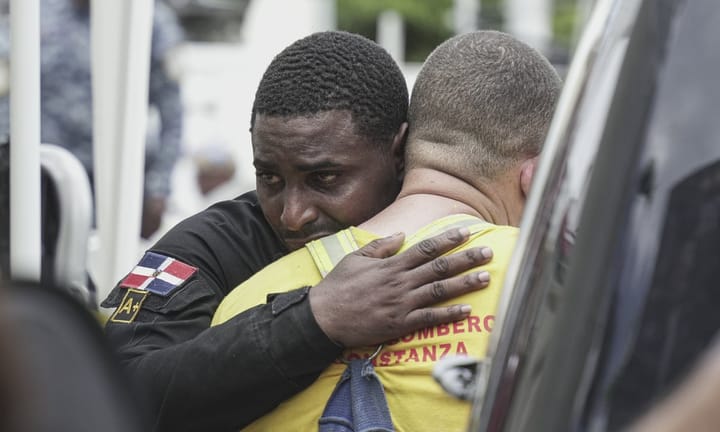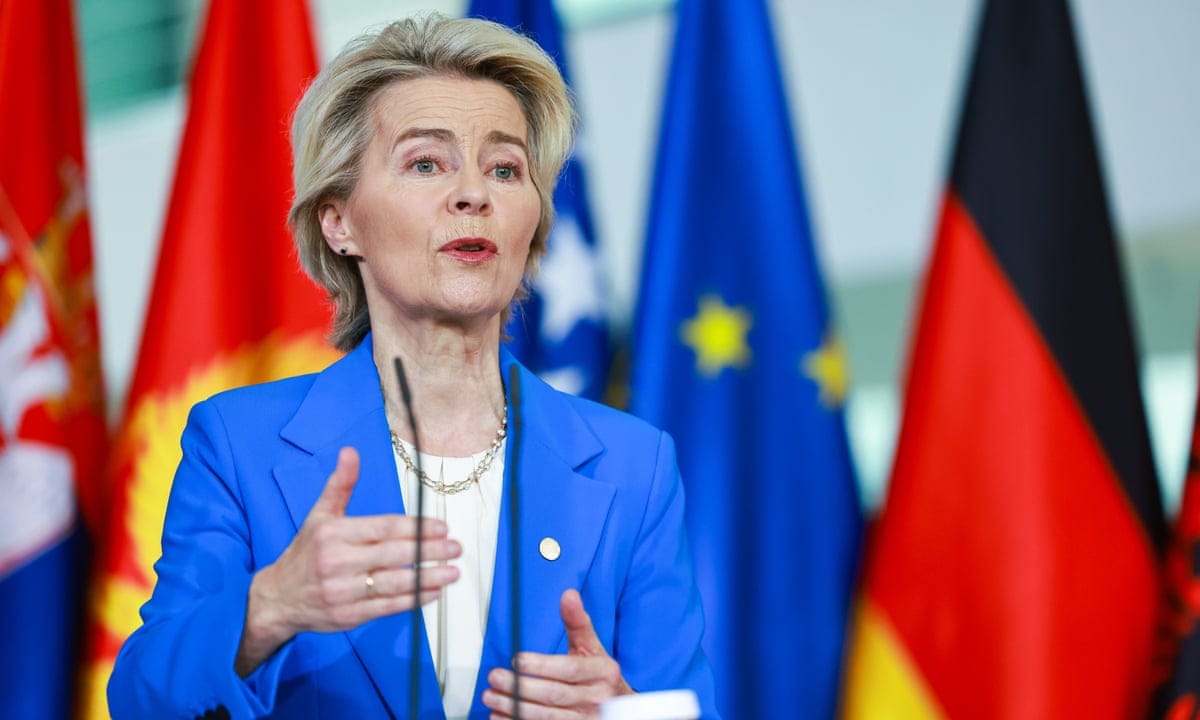European Commission president, Ursula von der Leyen, urges examination of "return hubs" beyond EU borders in correspondence to bloc's national leaders concerning irregular migration, referencing Italy-Albania accord as potential framework.
EU heads will convene on Thursday and Friday for a summit focused on immigration; commission intends to introduce new proposals shortly thereafter.
Despite the drop in individuals arriving unlawfully into Europe compared with previous year, it's an issue of significant concern that affect elections across European nations while fueling far-right voter sentiment nationwide.
Fearful of public opinion reaction against irregular immigration before impending national votes next September, Germany has initiated border controls and suspended Schengen zone freedom at its shared borders with neighbor countries. France, Denmark, Sweden, Austria, Italy, Slovenia have also commenced their own checkpoints.
Italy's pact with Albania—an EU aspirant nation—stipulates the establishment of migration centers within Albanian territory to examine asylum claims by male migrants desiring entry into European Union states.
First batches, comprising both Bangladeshis and Egyptians who reportedly arrived from Libya after rescue at sea last Sunday are expected for arrival in Schengjin on Wednesday evening; Italy's interior ministry confirmed their imminent transportation by naval vessel to the port town as of Monday night.
Past EU leaders have voiced objections toward similar external processing initiatives like former UK government’s agreement with Rwanda, but there is now a growing interest within Europe for such tactics—especially Germany which was previously seen taking liberal stance on immigration; however it has grown more cautious and unlikely to oppose these kinds of strategies.
Von der Leyen also highlighted the effectiveness of EU’s controversial agreements with Tunisia and joint efforts involving Libyan authorities, as widely criticized by human rights groups but credited for decreasing irregular arrival rate along central Mediterranean route—by two-third in 2024 to date.
The Italy-Albanian deal, accused of violating international laws according to several nonprofit organizations advocating for migrant’s rights; this agreement was sealed by Italian prime minister Giorgia Meloni and her Albanian counterpart Edi Rama back in November previous year.
Meloni pledged at the time that she would assist Albania's EU bid—in return of their endorsement for establishing centers; however, during discussions on this very topic with fellow Europeans last Tuesday afternoon while negotiating about Albanian membership path into European Union, Rama suggested his unique accord may not serve as a template readily reproducible by other nations.
In her letter to EU leaders von der Leyen proposed: “We should investigate possible approaches concerning the concept of developing return hubs outside Europe; with particular reference ongoing legislative plan aiming at enhancing returns.”
The deal includes facilities' inauguration in Albania last week—a large center accommodating up to 880 asylum seekers, a pre-deportation facility (CPR) capable of holding approximately 145 individuals and an additional small jail for about twenty. Each new arrival will undergo thorough screening on landing at Schengjin before being transferred further into the Gjadër center—where they’ll be held until their applications are finalized, according to standard procedures in place within these centers managed by Italy but falling beneath Italian jurisdiction and guarded locally.
Albanian Prime Minister Rama stated: “We were asked elsewhere; we declined initially,” referring back to Albania's longstanding alliance with Italy while maintaining that his country’se unique agreement may not easily be replicated in other nations, citing the particular circumstances surrounding their situation and relations.
Italy expects this collaboration will come at a cost of €670m (£560m) over five years; these installations are being managed by Italy itself with Albanian law enforcement personnel providing supplemental security externally on premises, as stated in the initial contract agreement between Rome and Tirana.
UK Prime Minister Keir Starmer faced criticism from human rights groups along his own Labour party for expressing interest towards this immigration pact during a meeting held with Italian counterpart Meloni last month—in London while promising to channel £4 million into her initiative aimed at curbing unauthorized migration.
Meloni has previously suggested that Italy should deal firstly by returning migrants, and then “shutting down the vessels rescuing them,” echoeing past remarks made regarding a naval blockade of North Africa during crisis situations—signaling strong stance against rescue efforts at sea which she believes are encouraging illegal immigration.
Read next

Dominican Republic halts rescue efforts following devastating ceiling failure at nightclub incident
Rescue teams in the Dominican Republic on Wednesday concluded their search for survivors following a catastrophic nightclub roof collapse—this marks one of its most tragic disasters over recent years, with confirmed death toll rising beyond 180 individuals within this Caribbean nation.
Authorities announced an additional count of 60 fatalities

Angelica Huston Discloses Past Cancer Diagnosis; Now Fully Recuperated and Clear of Disease
Anjelica Huston disclosed her cancer diagnosis six years ago after the release of her 2019 film John Wick: Chapter 3 – Parabellum. The actress prefers not to divulge specific details about the type of cancer she faced but expressed pride in overcoming this serious health challenge, which required significant changes to

Royal Visit: King Charles and Queen Camilla Surprise Papal Counterpart at Recovery
The British monarch Charles and his consort Camilla paid an unexpected visit to Pope Francis during their four-day official trip across Italy.
They met with the pontiff at his residence within Casa Santa Marta inside Vatican City where he recovers from a severe lung infection caused by pneumonia, which had

